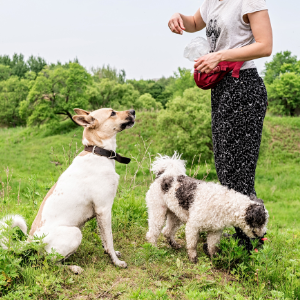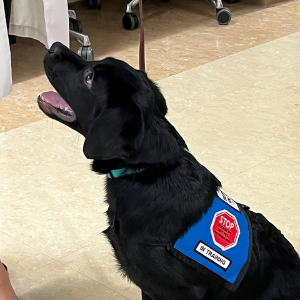Congratulations! You’ve decided to adopt a dog! Dogs can be amazing companions, excellent cuddle partners, and complete a family. The excitement of adding a furry friend oftentimes overshadows the long-term responsibilities that come with owning one. Making an impulsive decision can lead to frustration, and stress for both you and the dog. Before adopting a dog there are several things that you should consider to ensure you are prepared for the long-term responsibilities that come with owning one.
What Are The Reasons You Want To Adopt A Dog?
Before taking the final steps of adopting a dog, ask yourself:
- What is the motivation for wanting one?
- Have you recently gone through a major life event? Are you looking for a short-term feeling of companionship?
- What does your lifestyle look like?
- What do you envision your life being like in 5 – 10 years, does having a dog still make sense?
Additionally, there are ways that you can get a sense of what it would be like to be a dog owner full time, such as fostering. By temporarily fostering a dog, you can get a realistic picture of what daily life would be like as a dog owner, and it does not require a long-term commitment.
What to Consider When Adopting a Dog
- Do You Have The Time It Takes To Care For A Dog?
Having the time to care for and spend time with your dog is one of the most important parts of being an owner of one. You always have to keep in mind that they rely on you every day for food, water, potty breaks, exercise, and attention. Some questions to ask yourself regarding your time are:
- What does your daily schedule look like?
- Do you work from home?
- Is your schedule flexible?
- Do you have time to train your dog?
- Do you often go on overnight or weekend trips?
When considering adding a dog to your family, the time that is required is often not realized. This leads to the owner feeling overwhelmed which sometimes results in the pet being put back up for adoption. Be realistic about how your daily schedule can be impacted before making a final decision.
- Can You Financially Afford A Dog?
Having a dog is EXPENSIVE! It’s similar to having a child. In addition to the basics like food and veterinary care, you have to include crates, harnesses, insurance, toys, training, and boarding. While you may see an adoption fee as being affordable, that is just the beginning. Annually, owners spend an average of $1,480 on pet dogs’ basic expenses. While this can give you an estimate, pet owners generally spend more than that on their furry friends.
- What Does Your Household Look Like?
Think about what your current household situation looks like right now and how you think it will change over the next several years. Think about things like:
- Do you have children?
- Are you expecting to have them?
- Do you have aging parents that may need to live with you?
- Do you have a yard?
Having a dog and a busy family is very different from living single, or with two retirees. Keep in mind that as your family grows, so does your dog.
- What Type Of Breed Is Best?
Many dogs that are offered for adoption are often those of mixed breeds. Therefore, you may not know exactly what you are getting. By doing a little research on different kinds of breeds you can get a better understanding of what their adult size and general temperament will be. There is an overabundance of benefits to adopting a mutt and some of them are listed here.
- What Has The Dog Previously Experienced?
When adopting a dog, you never really know what their experience has been. Some of those who put their animals up for adoption often try to give as many details as possible, but who is to know what is true or not? Most often very little information is known about the life experiences that the dog has had. A puppy born and raised in a safe foster home will probably have fewer training and behavior challenges than a two-year-old that has been passed on from living life on the streets, through a shelter, or multiple adoptive homes before being chosen by you. Just like humans, dogs can carry mental and emotional baggage and you have to ask yourself if you are able to provide the patience, love, understanding, and training if necessary.
- Animal Communication
Adding animal communication to your resources for making the adoption as smooth as possible is always a good idea. During a telepathic communication session, a dog is able to share thoughts and images from his previous experience. They can let you know their favorite things and also the things that trigger fear or aggression. Getting to know the history and personality of your pet through animal communication helps get your relationship off to a solid start.




